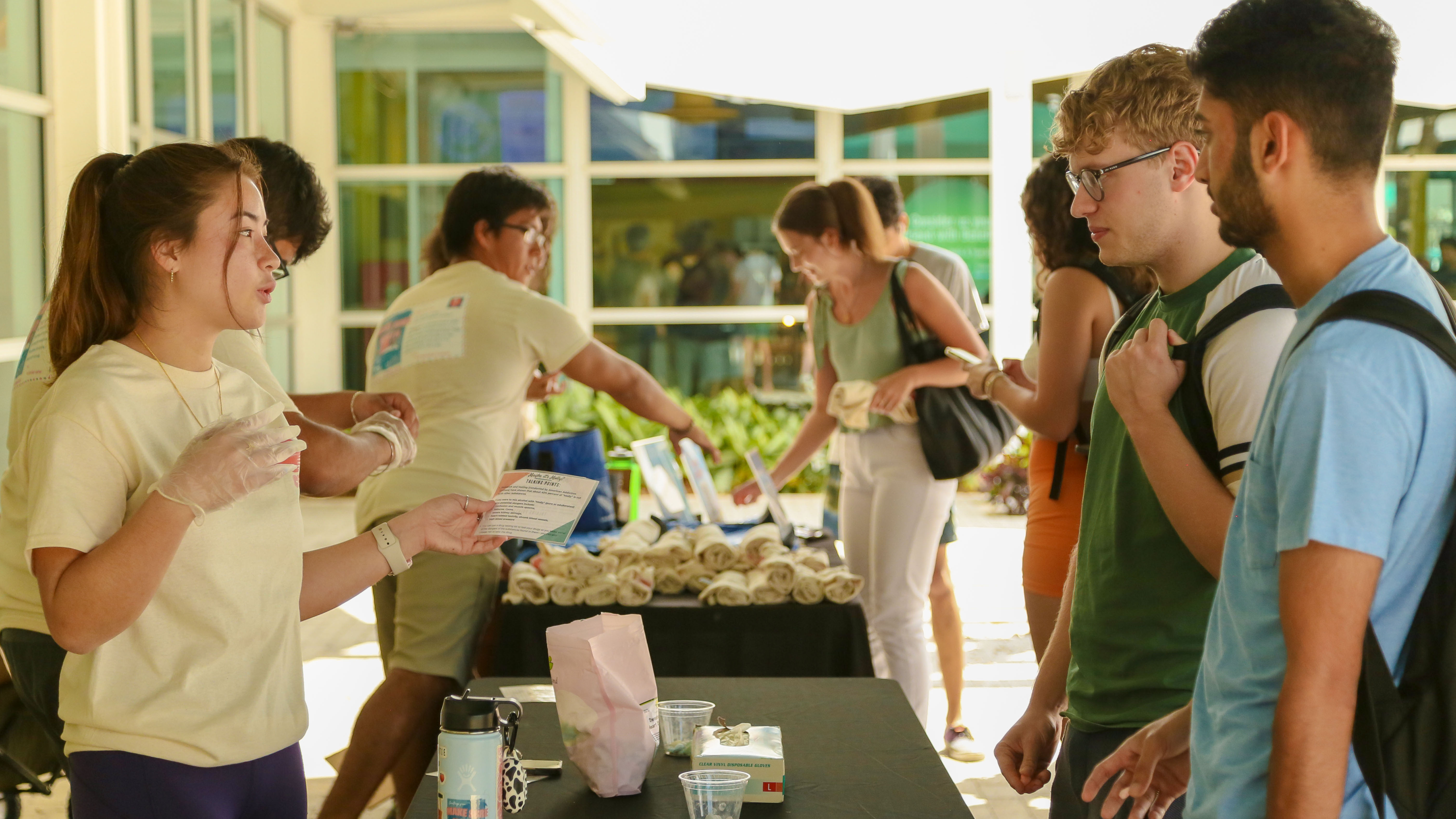Dedicated to helping students make responsible choices related to alcohol and other drugs, the Sandler Center for Alcohol and Other Drug Education is in full swing offering a lineup of programs aimed at stemming risky behaviors often associated with spring break and music festivals. And this month, their programming is getting an extra boost with a $10,000 grant from the International Town and Gown Association.
“It’s encouraging seeing our work being recognized and our messages reinforced. It’s a reminder that the work we do is important,” said Julie Erhardt, a senior majoring in business technology and legal studies and a peer educator at the Sandler Center.
At the heart of the Sandler Center’s programming, undergraduate peer educators work to bring their ideas to life and offer programs that meet the needs of their fellow students. From social media campaigns and merchandise to tabling and campus events, student employees conceptualize all that stems from the Center.
Every March, the Sandler Center hosts “Make Sure Week,” a week-long program designed to educate students about dangerous behaviors that stem from risky spring break activities and music festivals. With the added funding, the team will expand the week into a month-long campaign.
For Rachel Askowitz, assistant dean of students and director of the Sandler Center, using added resources to expand the program means they engage more students on the topic of alcohol and drug safety.
“Our goal is always to reach as many students as possible and spread our messages about important high-risk activities. For us, the new resources gained by the grant means we can extend ‘Make Sure Week’ into the entire month of March, allowing us to target both spring break and music festival behaviors at a larger scale,” said Askowitz.
Through interactive programming like a hands-on demonstration of pouring a standard drink and using goggles that simulate visual impairments brought on by alcohol intoxication, the grant-funded program invites peer educators to showcase their creativity in program innovation.
“We’re experiencing two classes of students who have never had a spring break, so it’s a key chance to arm these students with knowledge that can keep them safe. Even a slight push in the right direction can make a difference,” added Erhardt.
As the Sandler Center pivoted back towards in-person programming this academic year, it was also recognized for its adaptable virtual programming despite challenging circumstances brought on by the pandemic. Designated an Outstanding Peer Education Group at the 2021 NASPA General Assembly, the team was rewarded for their innovative hybrid programs that continued to connect with students.
“We found it important to search for meaningful ways to engage with students despite lacking an opportunity to connect in person. The uniqueness of hybrid programming is that we can educate students for as long as they want, and it continues to impact students after it has ended,” said Rachel Williams, a graduate assistant at the Sandler Center.
For students interested in joining the Sandler Center as a peer educator, applications for the 2022-2023 school year open on Monday, March 21. Students can complete a form here to be notified when the application opens.

